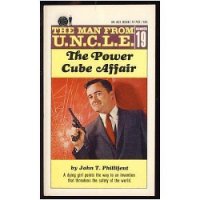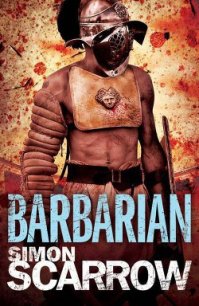Power of the Sword - Smith Wilbur (электронная книга TXT) 📗
lock Murphy had warned him about it. It will spoil your eye, Master Shasa. I have seen many a good man with a bat or a polo stick ruined by Mrs Palm and her five daughters. But in his fantasy Armalisa was sitting up, her long legs apart, and she was slowly drawing up the skirt of her white robe. The skin of her legs was smooth as butter, and he moaned softly. She was staring at the front of his costume, her tongue whisking lightly over her parted lips, and the white skirt rose higher and higher, and his fist began to jerk rhythmically. He could not prevent it.
Up and up rode the white skirt, never quite reaching the fork of her crotch. Her legs seemed to stretch forever, like the railway tracks across the desert running on and on and never meeting. He choked and jerked into a sitting position on the feather mattress, doubled over his flying fist, and when it came it was sharp and painful as a bayonet driven up into his intestines, and he cried out and fell back against the pillows.
Annalisa's sly grinning freckled face receded, and the wet front of his pyjamas began to turn icy cold, but he did not have the will to strip them off.
When the servant woke him with a tray of coffee and a dish of hard sweet rusks, he felt dazed and exhausted. It was still dark outside, and he rolled over and pulled the pillows over his head.
Madam your mother, she says I wait here until you get up, said the Ovambo servant darkly, and Shasa dragged himself to the bathroom trying to conceal the dry stain on the front of his pyjamas.
One of the grooms had his pony saddled and waiting at the front steps of the bungalow. Shasa took a moment to joke and laugh with the groom and then greet and caress his pony, rubbing foreheads with him and blowing softly into his nostrils.
You are getting fat, Prester John, he chided the pony.
We'll have to work that off you with the polo sticks. He swung up into the saddle and took the short cut, following the pipe track around the shoulder of the hill. The pipe line carried the water from the spring around the hills to the mine and the washing gear. He passed the pumphouse and felt a guilty pang at its associations with last night's depravity, but then the dawn lit the plains below the cliffs and he forgot that in the pleasure of watching the veld come alive and greet the sun.
On this side of the hills Centaine had ordered that the forest be left untouched and the mopani was tall and stately.
A covey of francolin were dawn-crying in the thicket down the slope, and a grey duiker, returning from the spring, bounded across the track under the pony's nose. Shasa laughed as he shied theatrically.
Stop that, you old show-off! He turned the corner of the cliff and the contrast was depressing. The desecrated forest, the deforming scar of the workings on the hillside, the graceless square iron buildings and the stark skeletal girders o t was ing gear, they were.
He gave the pony a touch with his heels and they galloped the last mile and reached the main haulage just as Twenty-man-Jones old Ford came up the track from the village with headlights still burning. He checked his watch as he stepped out and looked sad as he saw that Shasa was three minutes ahead of time.
Have you ever been down the haulage, Master Shasa? No, sir. He was going to add, My Mater has never allowed it, but somehow that seemed superfluous, and for the first time he felt a twinge of resentment at his mother's all-pervading presence.
Twenty-man-Jones led him to the head of the haulage and introduced him to the shift boss.
Master Shasa will be working with you, he explained.
Treat him normally, just like you would treat any other young man who will one day be your managing director, he instructed. It was impossible to tell by Twenty-man-jones expression when he was joking, so nobody laughed.
Get a tin helmet for him, Twenty-man-Jones ordered, and while Shasa adjusted the straps of the helmet he led him to the foot of the sheer cliff.
The incline tunnel had been cut into the base of the cliff, a round aperture into which the steel rail tracks angled downwards at forty-five degrees before disappearing into the dark depths. A string of cocopans stood at the head of the tracks, and Twenty-man-jones led him to the first truck and they climbed into the steel bin. The shift swarmed into the trucks behind them, a dozen white foremen and one hundred and fifty black workers in ragged dusty overalls and helmets of bright unpainted metal, laughing and ragging each other in boisterous horseplay.
The steam winch of the winding gear clattered and hissed and the string of trucks jerked forward and then, rocking and swaying, ran down the steeply inclined ramp on the narrow-gauge railway tracks. The steel wheels rumbling and clacking over the joints of the track, they dropped down into the dark maw of the tunnel.
Shasa stirred uneasily, stabbed with unreasoning fear at the sudden absolute blackness that engulfed them. However, in the trucks behind him the Ovambo miners were singing, their deep melodious voices echoing in the dark confines of the tunnel, a marvelous chorus raised in an African work chant, and Shasa relaxed and leaned closer to Twenty-man-Jones to follow his explanation.
The incline is forty-five degrees and the capacity of the winding gear is one hundred tons, in mining parlance that is sixty loads of ore. Our target is six hundred loads a shift raised to the surface. Shasa was trying to concentrate on the figures; he knew his mother would question him this evening, but the darkness and singing and the rumble of the swaying trucks distracted him. Ahead of him there was a tiny coin of brilliant white light that grew swiftly in size until abruptly they burst out of the far end of the tunnel and involuntarily Shasa gasped with astonishment.
He had studied the diagrams of the pipe and, of course, there were photographs on his mother's desk at Weltevreden but they had not adequately prepared him for its immensity.
It was an almost perfectly round hole in the centre of the hills. It was open to the sky, and the sides of the excavation were vertical and sheer, a circular wall of grey rock like a cockpit. They had entered it through the tunnel that connected the workings to the far side of the hills and the narrow ramp on which they were riding continued down at the same angle of forty-five degrees until it reached the floor of the excavation two hundred feet below them. The drop on either hand was breathtaking. The great rock-lined hole was a mile across, and its sheer walls four hundred feet from the tip to the floor.
Twenty-man-Jones was still lecturing him. This is a volcanic pipe, a blow hole from the earth's depths up which the molten magma was forced to the surface in the beginning of time. In those temperatures, as hot as the sun, and enormous pressures the diamonds were forged, and they were brought up in the fiery lava. Shasa stared around him, screwing his head to take in the proportions of the huge excavation as TWentyman-Jones went on, Then the pipe was pinched off at depth, and the magma in it cooled and solidified. The upper layer, exposed to air and sun, was oxidized into the classical "yellow ground" of the diamondiferous formation.
We worked down through that for eleven years, and only recently we reached the "blue ground". He made an expansive gesture that took in the slaty blue rock that formed the floor of the huge pit. That is the deeper deposit of the solidified magma, hard as iron and as full of diamonds as currants in a hot cross bun. They reached the floor of the workings and climbed down from the truck.
The operation is fairly straightforward, Twenty-man-jones went on.
The new shift comes in at first light and begins work on the previous evening's blast. The broken ground is lashed and loaded into the cocopans and sent up the haulage to the surface. After that they mark out and drill the shot-holes for the next blast and then they set the charges. At dusk we pull out the shift, and the shift boss lights the fuses.




